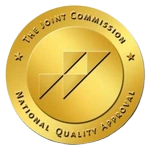Family can be both a source of great support and, at times, of considerable stress. When a loved one is struggling with addiction or mental health issues, the impact is felt by every member of the family. At Serenity Ranch, we recognize the vital role family plays in recovery. Our Family Therapy for Addiction in Kentucky is a cornerstone of our treatment programs, fostering healing for individuals and their loved ones. Whether navigating therapy for substance abuse, supporting someone through family addiction counseling, or addressing mental health concerns, we help families heal together, creating a supportive environment for lasting recovery.

What Is The Role of Family Therapy?
Family therapy for drug abuse is a specialized counseling approach that brings families together to address the impact of addiction or mental health disorders. At Serenity Ranch, our family therapy is grounded in evidence-based practices, tailored to meet the unique needs of each family. We help families understand the root causes of substance use and mental health issues, equipping them with tools to support recovery. Our holistic approach strengthens bonds and fosters a supportive environment essential for long-term recovery. Family Therapy empowers families to navigate challenges together, promoting healing and resilience.
Why Does Family Therapy Matter?
Addiction and mental health disorders are often called “family diseases” because they impact everyone. The emotional toll—confusion, frustration, or heartbreak—can be overwhelming for family members. At Serenity Ranch, we provide a compassionate space to process these emotions, learn about addiction and mental health, and develop healthy communication strategies. Our counseling helps families support their loved one while setting healthy boundaries that promote healing.
Family therapy works to rebuild trust, often strained by substance use or mental health challenges. Through counseling for addiction, families address guilt, shame, or blame, fostering deeper understanding. Family therapy can repair and strengthen family bonds, creating a supportive home environment that promotes sustained sobriety and mental wellness.

What Are The Benefits of Family Therapy in Addiction and Mental Health Treatment?
Our therapy offers key benefits that enhance recovery for both the individual and their family. By incorporating family addiction counseling, we ensure families are actively involved in healing. Benefits include:
-
Enhanced Communication: Therapy teaches families to communicate openly, reducing conflicts and fostering understanding.
-
Education on Addiction and Mental Health: Family counseling also helps families understand these conditions, promoting empathy as they now understand the complexities of the condition.
-
Rebuilding Trust: Addiction strains relationships. These sessions rebuild trust through honest communication and shared communication.
-
Support for Family Members: Family counseling also offers guidance and a safe space for family members to share and connect with others going through the same experiences.
-
Long-Term Recovery: Our therapy creates a support system, reducing relapse risk and promoting sustained recovery by involving families in the recovery process.
These benefits make Family Therapy in Kentucky a vital part of our holistic approach, equipping families to support their loved one’s journey.
How Does Family Therapy Integrate with Other Treatment Programs?
Complementing Drug and Alcohol Detox and Rehab
Drug and alcohol detox is often the first step in the recovery process. This phase focuses on safely managing the physical symptoms of withdrawal under medical supervision. While detox primarily addresses the physical aspect of addiction, the emotional and psychological impacts on the family are also significant. Family therapy can be introduced during or after detox to help family members understand what their loved one is experiencing and prepare them for the next stages of drug and alcohol rehab.
Integration with Detox:
- Emotional Support: Family members often feel anxiety or fear during the detox process. Family therapy supports them, helping them cope with their emotions and fears.
- Education: Family therapy educates family members about the detox process, the physical and psychological challenges involved, and what to expect as their loved one transitions into further treatment.
- Setting Expectations: Therapy sessions help families set realistic expectations and understand their role in supporting their loved ones through detox and beyond.

Contact Us
Enhancing Dual Diagnosis Treatment
Dual diagnosis treatment addresses individuals who are dealing with both addiction and co-occurring mental health disorders. This complex condition requires an integrated approach to care. Whereas, it combines mental health treatment with addiction recovery. Our family therapy in Kentucky is crucial in this process, focusing on how these co-occurring disorders impact family dynamics and relationships.
Integration with Dual Diagnosis Treatment:
- Understanding Mental Health: Family therapy educates family members about the specific mental health issues their loved one is facing. Thus, reducing stigma and promoting empathy.
- Communication Strategies: Therapy sessions teach families effective communication techniques that respect the sensitivities of someone struggling with both mental health issues and addiction.
- Support Networks: Building a strong support network is essential in dual diagnosis treatment. Family therapy strengthens this network by ensuring family members are informed, involved, and supportive.
Supporting Mental Health Recovery
Mental health recovery involves treating conditions such as depression, anxiety, PTSD, and other mental health disorders. Family involvement is critical in this process as family dynamics often influence mental health. And, the recovery journey can be significantly impacted by the family’s understanding and support.
Integration with Mental Health Recovery:
- Family Dynamics: Therapy helps identify and address dysfunctional family dynamics that may contribute to or exacerbate mental health issues.
- Coping Mechanisms: Families learn coping strategies and how to support their loved ones in managing their mental health, particularly during times of crisis.
- Reducing Relapse Risk: Family therapy plays a preventive role by equipping families with the tools they need to recognize warning signs and help prevent relapse.

Holistic and Trauma Therapy Integration
Serenity Ranch takes a holistic approach to recovery. We recognize that addiction and mental health issues often stem from deeper emotional or traumatic experiences. Family therapy integrates with holistic therapies and trauma therapy to address these root causes. Thereby, creating a more comprehensive treatment plan.
Integration with Holistic and Trauma Therapy:
- Healing Together: Family therapy in Kentucky, combined with trauma therapy, helps the entire family process and heal from shared or individual traumas, fostering a supportive environment.
- Mind-Body Connection: Holistic therapies such as mindfulness and meditation, when combined with family therapy, help family members connect on a deeper emotional and spiritual level, promoting collective healing.
- Building Resilience: Family therapy strengthens the family’s collective resilience by teaching them holistic practices that reduce stress and improve emotional regulation.
Incorporating the 12 Steps and Life Skills
The 12 Steps and life skills training are integral parts of Serenity Ranch’s recovery programs. Family therapy seamlessly incorporates these elements to reinforce the principles learned in individual therapy and extend them into the family dynamic.
Integration with 12 Steps and Life Skills:
- Applying the 12 Steps: Family therapy explores how the 12 Steps can be applied to family life. It helps members practice principles such as acceptance, forgiveness, and making amends within their relationships.
- Developing Life Skills: Life skills training in family therapy helps families develop practical skills like conflict resolution, stress management, and healthy communication, which are essential for sustaining recovery at home.
- Sustained Recovery: By learning and applying these skills together, families create a more stable, supportive home environment that encourages long-term recovery.
The Journey Ahead
Frequently Asked Questions
Heal Together with Family Therapy in Kentucky
Family is a powerful force in the recovery process. At Serenity Ranch, family therapy is designed to harness this power. Thereby, providing families with the tools and support they need to heal together. Whether you are facing addiction, mental health challenges, or dual diagnosis, we are here to help.
Contact us today to learn more about how our family therapy in Kentucky can support your family’s journey to recovery.
Your Insurance May Cover The Cost Of Detox and Rehab
Lets Start Your Mental Health Recovery Journey Today
Redefining Healing: Personalized Care in a Comfort-First Environment

State-Of-The-Art Facility

Luxury Bedrooms

Dedicated Private Chef

Fun and Games

Clinician & Medical Owned & Operated

Family Therapy Sessions

Weekly Outings

Twice‑Weekly Individual Therapy

Small Groups, Big Recovery



Why Choose Serenity Ranch?
-
Experienced and Compassionate Staff: Our team consists of experienced professionals dedicated to helping individuals achieve lasting recovery. We are committed to providing compassionate, non-judgmental care.
-
Tailored Treatment Plans: We understand that each person’s journey to recovery is unique. Our tailored treatment plans ensure that every client receives the specific care they need to succeed.
-
Safe and Supportive Environment: Serenity Ranch provides a safe, supportive environment where clients can focus on their recovery. Our facilities are designed to promote healing and comfort, allowing individuals to feel at ease as they work towards sobriety.
Get Family Support Now
Supporting Families Through Recovery
We understand addiction affects the whole family. Our comprehensive family program helps rebuild trust and restore relationships.
Weekly Family Therapy Sessions
Educational Workshops
Support Groups
Communication Skills Training
Get Family Support Now


